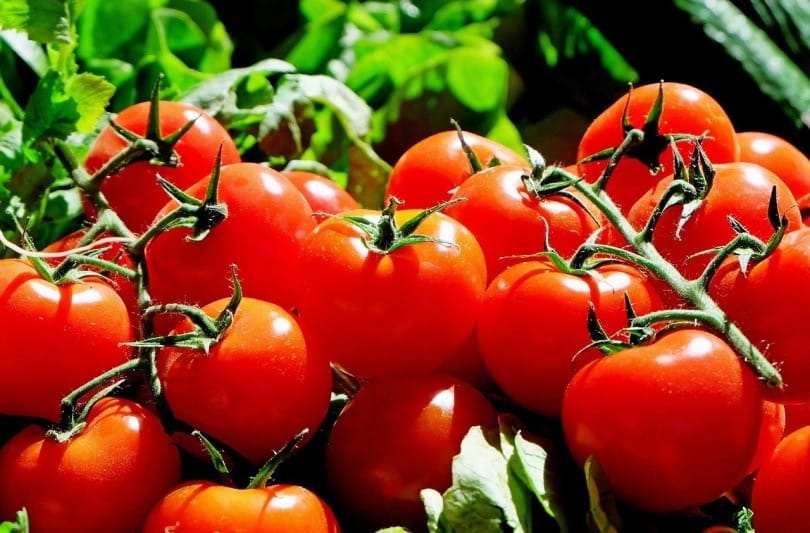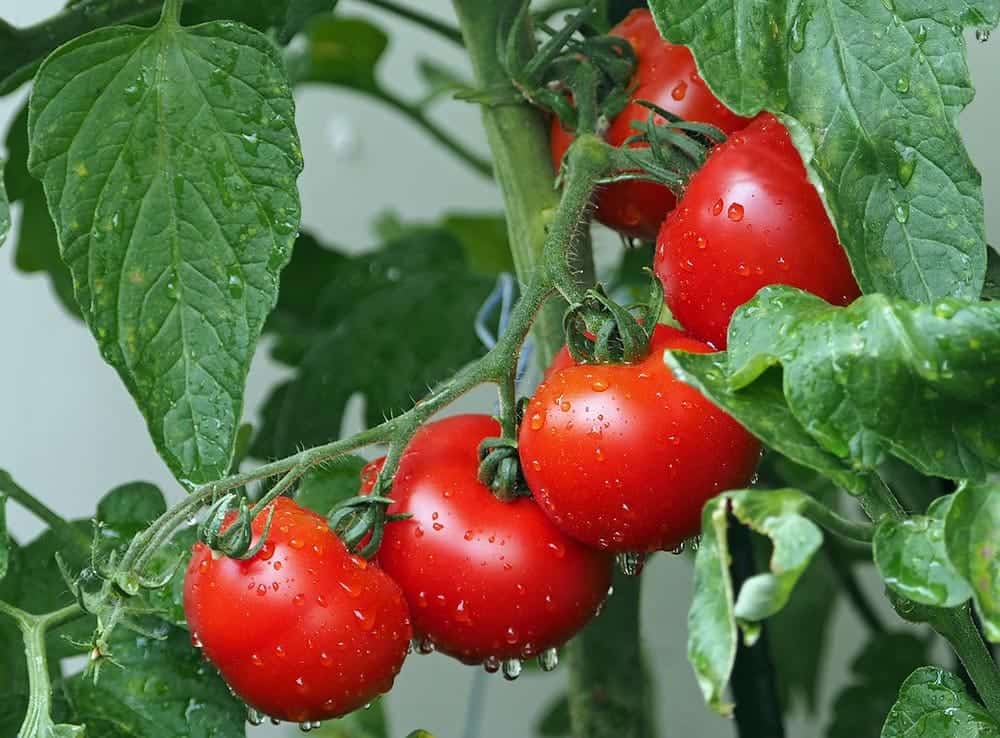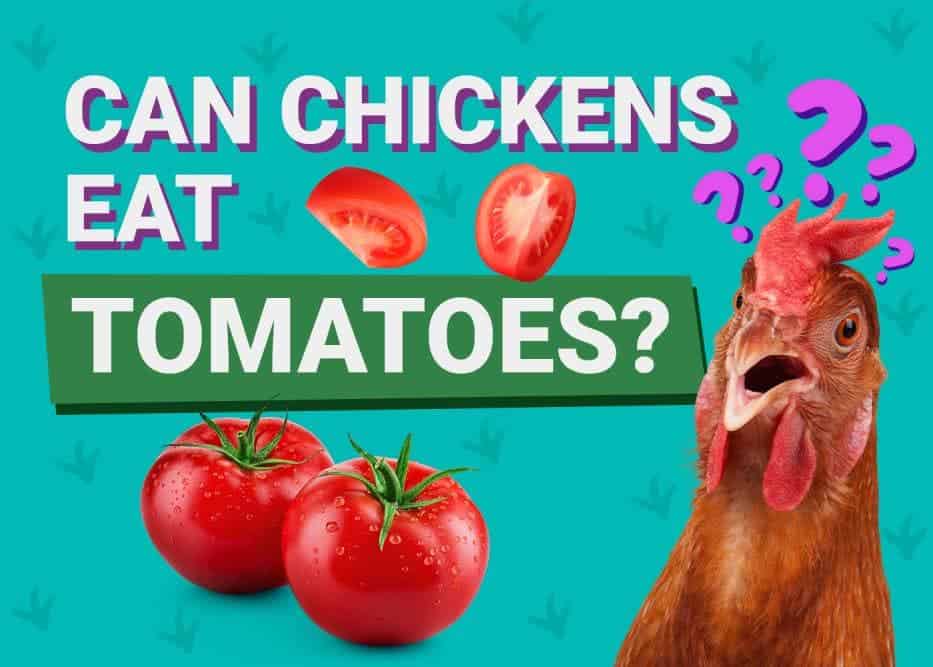Approved by Dr. Paola Cuevas
If you’ve had chickens for a while, you know that they are voracious eaters that will get into pretty much anything. But just because they will pluck around at different food items doesn’t mean that they can eat everything. So, if you have some cluckers nipping around your garden, you might wonder, can chickens eat tomatoes?
Yes, chickens can safely eat ripe tomatoes. However, keep them away from the tomato plant or the unripe fruit. Tomatoes are members of the nightshade family, and the plants contain solanine, which can be toxic. Let’s find out more.

Chickens Can Eat Tomatoes
Chickens absolutely can and will eat tomatoes. You might find them intruding into your garden, pecking away at all of the delicious red fruits. Chickens may love tomatoes and your other garden vegetables so much that you have to put up reinforcements to keep your plants safe.
Offering ripe tomatoes to your chickens is okay, as long as they are served only in small portions on occasion, and ideally with a variety of other fruits and vegetables.
Chickens Can’t Eat Tomato Plants
Even though the fleshy parts of a ripe tomato are perfectly safe for chickens, the vines and leaves are another story. Tomatoes are part of the nightshade family, and the plants themselves contain solanine.
Solanine is a glycoalkaloid poison that protects the plant, deterring animals from eating the growth. Because of the extreme bitterness, most creatures know to avoid it entirely.
Signs of solanine poisoning often include:
- Gastrointestinal upset
- Lethargy
- Diarrhea
- Neurological issues
If you know that your chickens ate the plant stems or leaves, contact your vet right away. This type of poisoning can be severe—and even deadly. So, treatment is a time-sensitive matter.

Tomato Nutrition Facts
Serving Size: 1 tomato (125 g)
- Calories—22
- Water—95%
- Protein—1.1 g
- Carbohydrates 4.86 g
Vitamins & Minerals
- Vitamin A—52.5 mg
- Vitamin C—17.1 mg
- Calcium—12.5 mg
- Iron—0.33 mg
- Sodium—Sodium—6.25 mg
- Potassium—2962 mg
- Magnesium—13.8 mg
Do Chickens Like Tomatoes?
There are many tomato varieties, and your chickens might have a preference as to which they like best. Most chickens love tomatoes of all sorts. The fruity, ripe flesh portions are always chicken friendly.
Even though chickens have a good sense of what they can and can’t eat, it is still best to separate them from the entire tomato plant. It’s a safety precaution because they could accidentally ingest the green parts or the unripe fruits. It would help if you had complete control over how much and how often they eat it.

Versatility in the Chicken Diet
Chickens are omnivores. Even though chickens benefit from many different fruits, veggies, and grains, their dietary staple will come from their commercial chicken feed. These recipes are designed to cover all of the bases of essential nutrients that they need to thrive.
Chickens also require an adequate amount of insects and small prey, like mice and frogs. These types of entrees are more common in a free-ranging diet.
How Often Should You Feed Tomatoes to Your Chickens?
Since chickens require so much diversity in their diet, feeding them an overabundance of any specific thing, like tomatoes, can have adverse effects on their body. Tomatoes do not have all of the nutrients necessary to create foundational building blocks in their system.
However, tomatoes are scrumptious, soft items for your chickens to delight themselves in moderation and occasionally. It’s best to switch up their daily vegetables, so try to alternate tomatoes with other vegetable and fruit options every other day, and only feed a few pieces to each chicken at a time.

Summary
So, now you know that your chickens can have tomatoes as long as they are fully ripe. They should never eat the vines or leaves on the tomato plant nor the unripe fruit, as these are toxic and can be harmful to your flock.
It’s always best to have reinforcements in your garden to keep your chickens from your produce. Chickens are masters at weaseling their way into any small space and foraging for yummy food. So, it is vital to have proper fencing between these plants and your birds.
- You may also be interested in: How to Keep Chickens Out of Your Garden (13 Tips)
